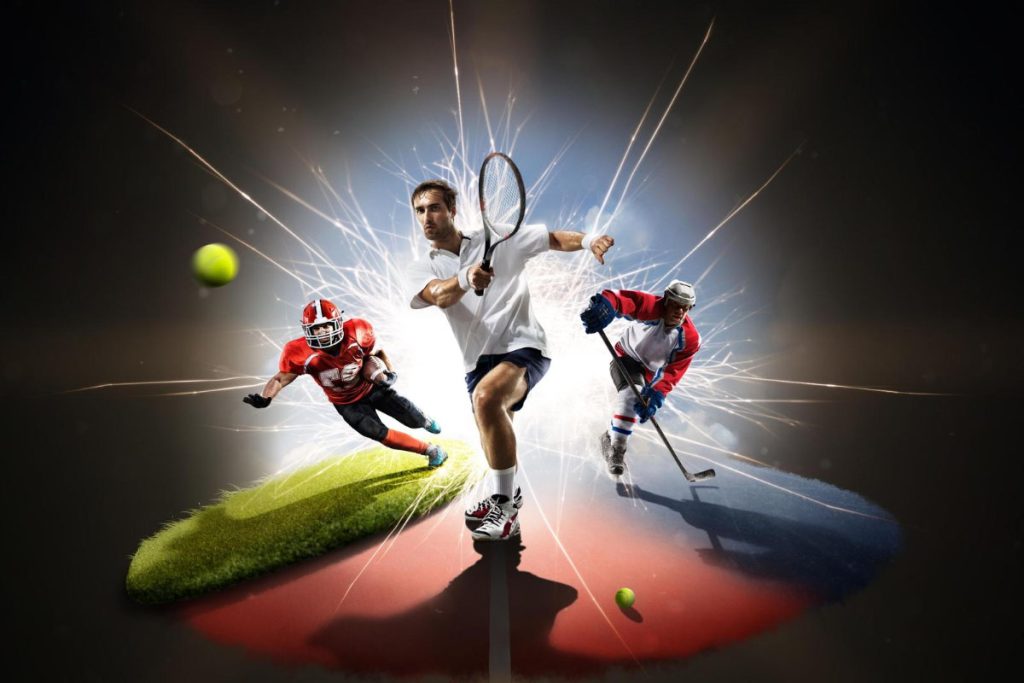Diet for sports performance is a structured approach to fueling, hydration, and recovery that can elevate energy, focus, and endurance. For athletes, nutrition for athletes isn’t a one-size-fits-all recipe; it hinges on timing, personal tolerance, and sport-specific demands. Effective strategies include well-timed pre-game meals that balance carbohydrates, protein intake before games, and mindful hydration strategies for sports. Carbohydrate loading can be useful for longer events, helping replenish glycogen stores when training and competition demand high energy. By practicing these elements in training, athletes can optimize energy availability and readiness without GI distress.
A complementary approach is to view nutrition as an athlete fueling plan that aligns energy availability with training demands. This form of energy management emphasizes macronutrient timing, glycogen restoration, and protein timing to support muscle repair and cognitive function. Hydration balance and electrolyte tactics play a central role, ensuring fluid shifts support thermoregulation and perceived effort. By framing the topic in terms of fueling for performance, energy systems and recovery cycles become the core focus of planning around training calendars.
Diet for sports performance: Fueling principles for energy, recovery, and consistency
Diet for sports performance is best viewed as a structured fueling plan rather than a single meal or supplement. By aligning energy systems with training demands, athletes can support muscle function, mental sharpness, and steady performance across practice and competition. In practice, this means prioritizing carbohydrate availability for high-intensity efforts, adequate protein for repair and adaptation, and fluids that preserve cognition and thermoregulation. The concept echoes the broader idea of nutrition for athletes: consistent, sport-specific choices that optimize energy delivery and recovery.
A practical fueling framework starts with macronutrient timing and total daily intake. Carbohydrates serve as the primary fuel during intense efforts, with intake in the range of roughly 3–5 g per kilogram of body weight per day (adjusted for training load) helping to maintain glycogen stores. Protein supports muscle repair and adaptation, with recommended targets around 1.2–2.0 g per kilogram per day, plus a post-exercise dose of 20–40 g to accelerate recovery. Fats provide a steady energy source for longer efforts, while fiber and micronutrients support overall health and energy production.
Hydration and electrolytes are foundational to performance, cognition, and thermoregulation. Regular fluid intake, electrolyte balance, and timing around practices and games help sustain endurance and focus. In addition, tailoring choices to individual tolerance and sport-specific demands—whether you’re sprinting, playing a team sport, or endurance cycling—ensures the plan remains practical and effective. This athlete-centered approach to fueling aligns with the broader goals of hydration strategies for sports and protein intake before games when applicable to training schedules.
To translate these principles into action, athletes should practice fueling during training, refine their pre-activity meals, and track how different foods influence energy, GI comfort, and performance. Personalization is essential: some athletes perform best with larger meals earlier and lighter snacks closer to start times, while others prefer smaller meals throughout the day. Documenting responses to different foods helps tailor the Diet for sports performance to the individual, season, and sport.
Pre-game meals, carbohydrate loading, and hydration strategies for competition
Pre-game meals should emphasize digestibility, rapid energy delivery, and stomach comfort. Typically consumed 2–4 hours before activity, these meals are tailored to sport type, tolerance, and timing. Practical options include carbohydrate-focused choices like oats with fruit, a bagel with a light protein source, or a rice bowl with lean protein. A modest amount of protein (about 15–25 g) and lower fat or fiber can reduce GI distress while maintaining energy. Hydration should be steady in the hours leading up to activity, with 400–600 ml of fluid 2–3 hours prior and a smaller amount closer to start to prevent heaviness.
Carbohydrate loading is a strategy for longer events or multi-day competitions where maximizing muscle glycogen is advantageous. This approach typically involves tapering training while increasing carbohydrate intake for 2–3 days before the event. It’s most relevant for endurance or ultra-endurance efforts, but athletes should assess their event energy demands to determine if it’s appropriate. Emphasize familiar, easily digestible carbohydrate sources—starches, fruits, dairy or fortified alternatives—and maintain adequate fluids to support absorption and digestion.
Hydration strategies for sports are foundational to consistent performance. Establish a daily hydration baseline with fluids guided by thirst and urine color, aiming for light yellow as a sign of adequacy. During longer or more intense sessions, include electrolytes (sodium, potassium, magnesium) in beverages to replace sweat losses. Pre-, during-, and post-exercise fluids should be tailored to duration and conditions, with sports drinks or homemade solutions providing carbohydrates and electrolytes to sustain energy and hydration. Remember that individual differences, such as heat, humidity, and sweat rate, require personalized hydration plans tested during training.
Protein intake around competition can support recovery and adaptation both before and after events. A light pre-exercise protein source can aid amino acid availability without imposing heavy digestion, while post-exercise protein (20–40 g within 1–2 hours) supports glycogen resynthesis and muscle repair. Emphasize high-quality protein sources—lean poultry, dairy, eggs, fish, legumes, and soy—wherever possible, with shakes or smoothies as convenient options if appetite is reduced after exertion.
Frequently Asked Questions
Diet for sports performance: What should I eat for pre-game meals and how can hydration strategies for sports enhance my energy and focus?
For pre-game meals, aim 2–4 hours before activity with 1–4 g/kg of carbohydrates and 15–25 g of protein, while keeping fats and fiber moderate to minimize GI distress. Good options include oatmeal with banana, yogurt with fruit, or a turkey sandwich on white or whole-grain bread. Hydration strategies for sports emphasize a daily fluid baseline, electrolytes as needed, and about 400–600 ml of fluid 2–3 hours before exercise plus a small amount 15–30 minutes before start to stay hydrated without heaviness.
Diet for sports performance: How do carbohydrate loading and protein intake before games influence performance and recovery?
Carbohydrate loading can maximize glycogen stores for longer events by increasing daily carbohydrate intake to about 3–5 g/kg and tapering training for 2–3 days before the event. For protein, consuming 15–25 g before games supports amino acid availability, and 20–40 g within 1–2 hours after exercise accelerates recovery and glycogen resynthesis when paired with carbohydrates. This approach aligns with nutrition for athletes and supports both performance and adaptation.
| Section | Key Points | Practical Tips |
|---|---|---|
| Focus and purpose | Diet for sports performance is a structured approach to fueling, hydration, and recovery to optimize energy, focus, endurance, and post‑game recovery across sports and schedules. | Plan meals and fluids around training and competition; tailor fueling to your sport and timing. |
| Why diet matters | Nutrition supports energy systems, muscle function, and cognition. Carbs power high‑intensity efforts; protein aids repair; fats provide longer‑term energy; fluids/electrolytes support performance and cognition. | Align intake with training demands; stay hydrated; monitor energy, focus, and stamina. |
| Key nutrients and timing | Carbohydrates are the primary fuel for high‑intensity exercise; protein supports repair and adaptation; fats provide sustained energy; hydration and electrolytes are critical; fiber and micronutrients matter; timing around meals matters. | Carbs: 3–5 g/kg/day depending on load; Protein: 1.2–2.0 g/kg/day with post‑exercise 20–40 g; choose unsaturated fats; manage fiber near events; hydrate around practices. |
| Pre‑game meals | Meals should be digestible, energy‑providing, and comfortable. Typical window is 2–4 hours before activity. | Carbs: 1–4 g/kg in 2–4 hours before competition; Protein: 15–25 g; low fat/low fiber; 400–600 ml fluids 2–3 hours before; personalize timing. |
| Carbohydrate loading and endurance | For longer events, glycogen stores can be increased by tapering training and increasing carbs for 2–3 days prior. | Choose high‑carb foods that you tolerate; pair with fluids; include a mix of starches, fruits, dairy/fortified options, and vegetables. |
| Hydration strategies | Hydration is essential for endurance, temperature regulation, and cognition. Balance fluids and electrolytes; adjust for sweat rate. | Baseline hydration: sip fluids; include electrolytes (sodium, potassium, magnesium); pre/during/post hydration; tailor with a hydration log. |
| Protein before and after games | Protein supports recovery, immune function, and glycogen resynthesis when paired with carbs. | Pre‑exercise: 15–25 g protein; Post‑exercise: 20–40 g within 1–2 hours; include lean poultry, dairy, eggs, fish, legumes; shakes are convenient if needed. |
| Tailoring the plan | Different sports demand different fuel profiles; adjust calories/macros and fueling plans; practice fueling during training. | Build a routine; test fueling strategies in training; track digestion, energy, and mood to personalize for season or competition. |
| Common mistakes to avoid | Skipping meals; high fiber too close to competition; overreliance on supplements; ignoring individual tolerance. | Regular meals and snacks; choose familiar, easily digested foods near events; use supplements thoughtfully and with guidance; experiment during training. |
| Putting it all together | Establish baseline needs, create a fueling routine, practice fueling, and personalize based on experience. | Set daily calories/macros, create recurring meal patterns around training, and test strategies ahead of events. |
Summary
Diet for sports performance is a strategic blend of carbohydrate availability, protein for recovery, fats for sustainment, and precise hydration. By prioritizing pre-game meals that are easily digestible, optimizing carbohydrate timing, and incorporating hydration strategies for sports, athletes can maximize energy, precision, and resilience across training and competition. Remember that nutrition for athletes is highly individualized; what works for one person may need adjustment for another. With thoughtful planning, practice, and consistency, you can optimize your Diet for sports performance and unlock your best game-day outcomes.



